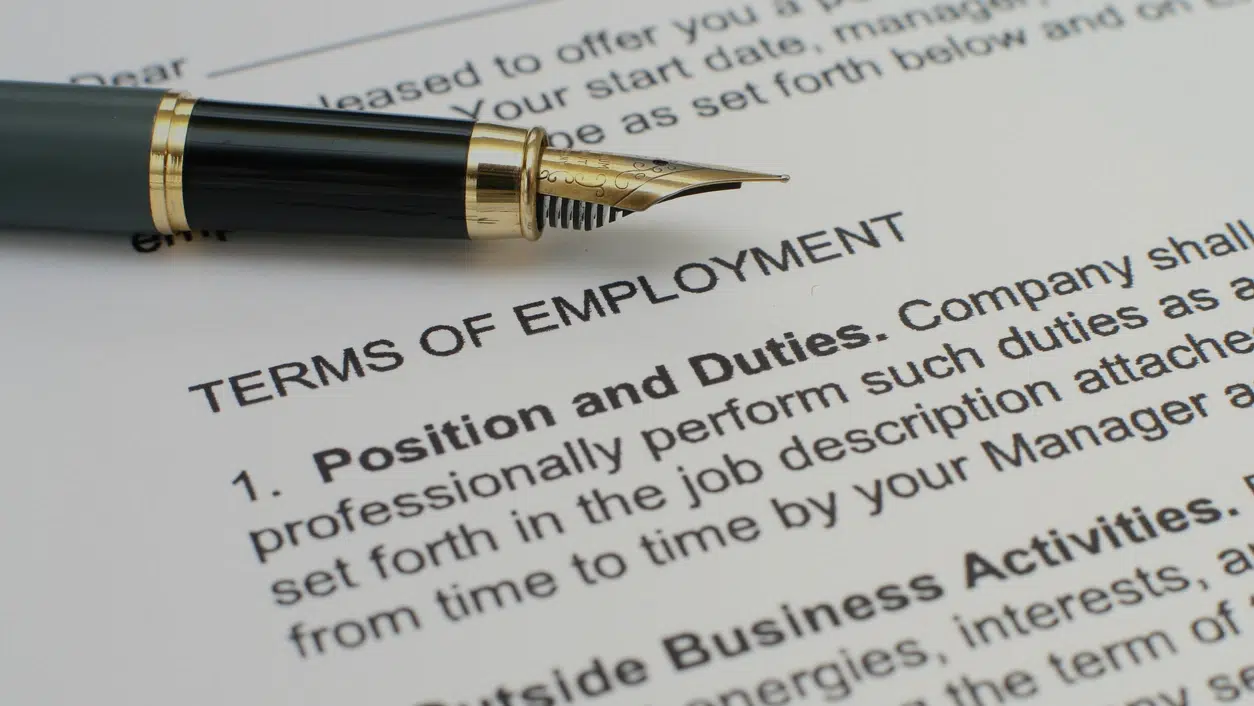There are many kinds of agreements and contracts, both written and verbal, that define the relationship between employer and employee. Agreements and contracts are relevant throughout the employment process, from the date of hire through end of an employment relationship and beyond. Employment attorneys can be helpful both when establishing and negotiating the terms of an employment contract, or in the event that there is a breach of contract.
Employment Contracts
When an employer employs any worker, an employment contract is established. This contract may take the form of a signed written document, may be based on provisions in an employee handbook, or could be established through a verbal agreement. Whether written or implied, an employment contract establishes the terms of the relationship between the employer and the employee.
Employment contracts often cover topics such as employee classification, compensation, bonuses and commissions, the duration of employment, employee schedule and responsibilities, sick time, performance expectations, and just causes for termination, among other things. Employment contracts may also include confidentiality agreements, non-compete clauses, and intellectual property agreements.
Before you sign any employment contract, it may be helpful to have it reviewed by an employment lawyer. Depending on the nature of the job, an employment attorney can be helpful in establishing and negotiating the terms of the agreement. An employment attorney can be helpful in determining whether or not the terms of the agreement are legal, for example whether the employee classification and pay structure comply with state and federal laws. If your employer fails to comply with the terms of your agreement, causing a breach of contract, an employment attorney will be able to fight for your rights.
Severance Agreements
When an employee is terminated or laid off, an employer may choose to provide a severance package and ask the employee to sign a severance agreement, signifying the end of the employment relationship. A severance agreement may offer the former employee monetary or other benefits, in exchange for other provisions intended to protect the employer. Often, a severance agreement will ask that the employee waive their right to sue the employer for discrimination or harassment. Severance agreements may also contain non-compete and non-disparagement provisions, which will limit the former employee’s ability to accept certain jobs and speak negatively about their former employer.
Employees are not required to sign any severance agreement. Before signing any agreement, carefully review its provisions. Employees may also negotiate the terms of the severance agreement before signing. Before you sign any separation agreement, it is highly recommended that you have it reviewed by an employment lawyer.
Arbitration Agreements
Companies often ask employees to sign arbitration agreements. An arbitration agreement will preclude employees from bringing any complaints against the employer in court, and bar employees from participating in any class action lawsuits filed in court. Instead employees who have signed arbitration agreements are forced to make their case in a private arbitration – a format which is often favorable to the employer. An employer cannot force any employee to enter into an arbitration agreement as a term of employment.
When to contact an Employment Attorney
In order to ensure that your rights are not being violated, it may be helpful to contact an employment attorney when reviewing, negotiating, or signing any employment contract or a separation agreement. It may also be important to contact an employment attorney if you believe that the terms of your employment contract have been breached.
Avloni Law is a law firm dedicated to fighting for your rights in the workplace. If you have received a contract or agreement, Navruz Avloni can review it for you and make sure you are not signing away your rights as an employee. Schedule a free consultation with Navruz Avloni. We represent clients across California, with offices in Los Angeles, San Jose, and San Francisco.

